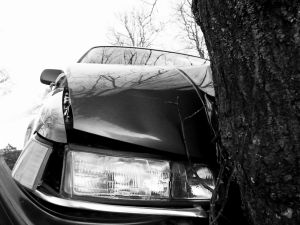So You’ve Been In A Car Accident! Now What?

It can happen in the blink of an eye. Running a red light, sending a text message, checking your hair in the mirror, or simply just zoning out. Everything seems fine until it isn’t. First the screech of brakes, then the impact, then the shock. Now what? A car accident can be emotionally taxing for everyone involved. It is important to keep your cool in the heat of the moment to ensure everyone’s safety and provide accurate information to the police.

This one might seem more than a little obvious, but in many cases drivers are so eager to lay into the moron that just rear-ended them that they overlook important details like blood and broken bones. Take a moment to take stock of yourself and your passengers. Obviously call 911 if necessary. Be sure and ask the other driver if they are ok. A little civility now sets the tone and can go a long way towards avoiding costly legal action.
If you or anyone involved in the crash is feeling dizzy, confused, or otherwise out of sorts, call an ambulance right away. Injuries like concussions and internal bleeding aren’t always obvious. Don’t risk someone’s life just so you can blow off some steam yelling at the other driver. An open road is no place for a confused, dizzy individual unless you’re playing Frogger. Sit them down on a curb or in a vehicle until help arrives.
You have already been in one accident today, no need to make it two. If your car can still be safely driven, get out of traffic and to a safe place quickly. If your car isn’t exactly in working condition, turn on your hazard lights and place road flares or reflective warnings around the scene of the accident. Check for traffic and use extra caution when exiting your vehicle.
While laws vary from state to state, the rule of thumb has always been to call the police if the damage from the crash exceeds $500. If it was a simple fender-bender and there is little to no damage there usually isn’t a need to involve the police. Give the dispatcher as much information as possible. Tell them who, if anyone is injured, and the extent of the injuries. Most stations will dispatch an ambulance as a matter of liability. Try and remain calm and don’t hang up until the dispatcher says it is ok.
No matter how hard you yell, you can’t turn back time. The crash has happened and you need to accept it and begin to deal with it. Placing blame will only give you a bigger headache in the end. Likewise, even if you think a crash was your fault, do not admit fault or accept blame at the scene. Do not try and drag the police into an argument. They are there to impartially record the information and issue tickets if necessary.
Under no circumstances should you argue with the police, this is a surefire recipe for disaster. If you believe the police have acted unfairly, file a formal complaint after the fact.
Get as much information as you can. Exchanging names, phone numbers, and insurance information should be the bare minimum. If you are planning on taking legal action, or suspect that the other driver may be, gather all the information you can. Note the time of day, weather, and road conditions. Take multiple pictures of the scene and damage to the cars. Try and get the contact information of at least one eyewitness.
If the accident does end up in court, you could lose a lot of money, deserved or otherwise, because of things you failed to do following the accident. After the fact, be sure to get a copy of the police report.
While it is clearly best to just not get in car crashes in the first place, being prepared can limit the damage. Have your driver’s license and insurance information on you every time you drive. It is also a good idea to keep pen and paper in your glove box to exchange information and make notes about the accident.
Although most of us do it every day, statistically speaking driving is one of the most dangerous things we will ever do. The National Safety Council estimates that one in eleven people will be involved in a car crash at some point this year. Car wrecks are a two-way street, and chances are good that no matter how great a driver you may be, you will be involved in a car crash at least once during your lifetime. Be prepared for the worst, be aware of your rights and responsibilities, and most of all be safe on the roads.
License: Royalty Free or iStock
source: http://www.sxc.hu/photo/921217
The author of this article is Damien S. Wilhelmi. If you enjoyed this piece you can follow me on Twitter @JakabokBotch. When im not writing about what to do after a car wreck for a Colorado truck accident lawyer, I’m usually trying to learn more about how to avoid accidents altogether.
